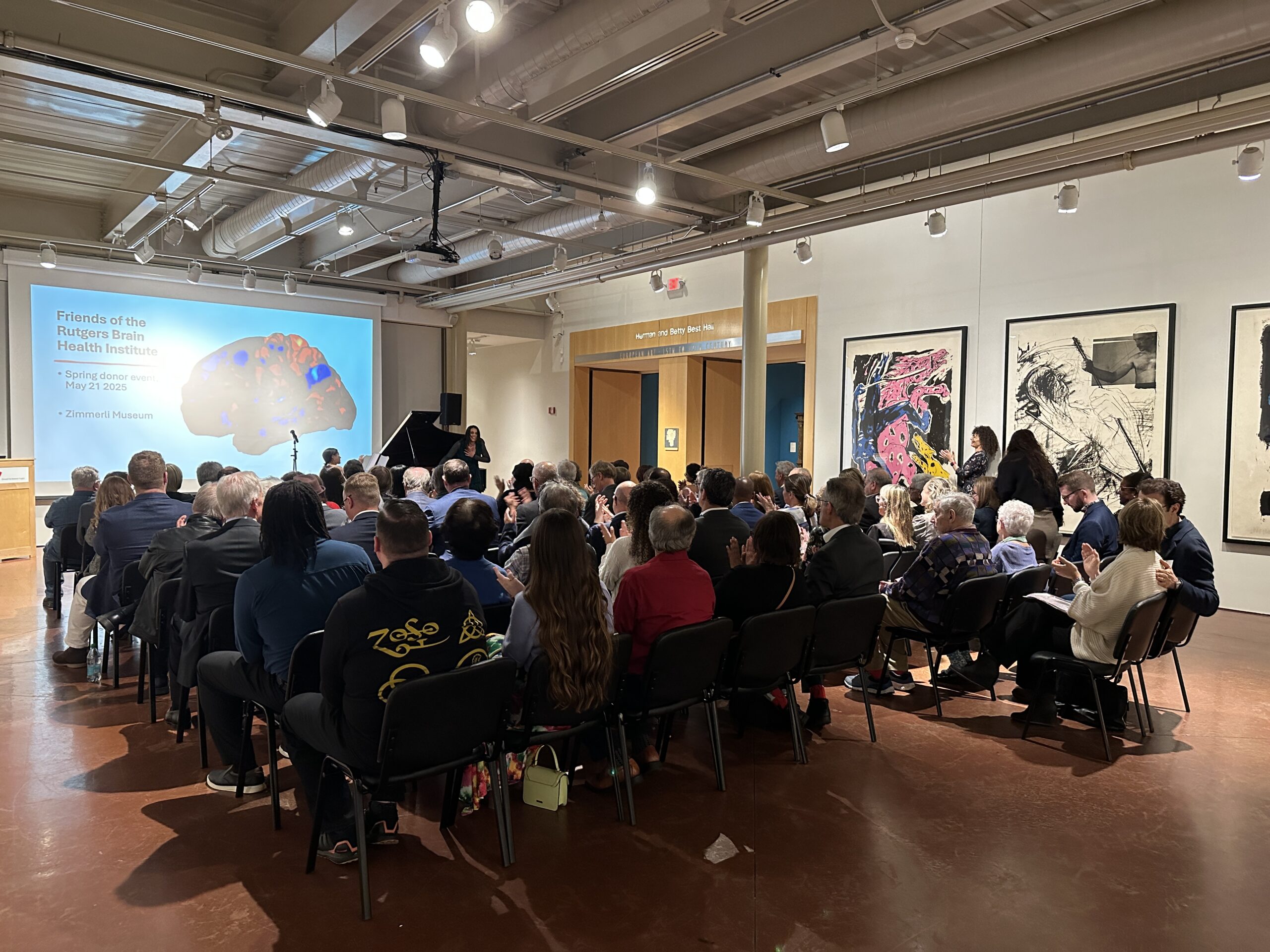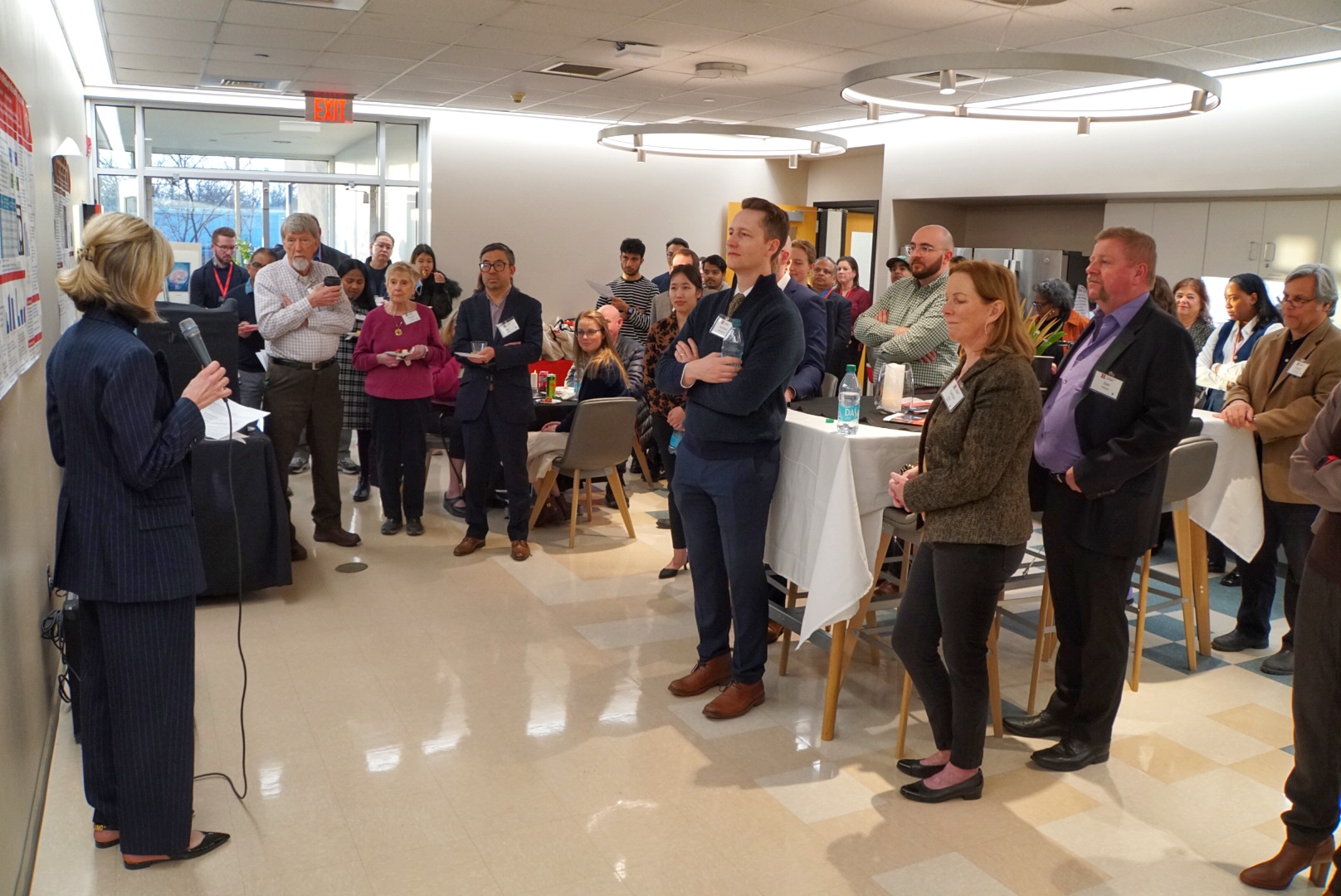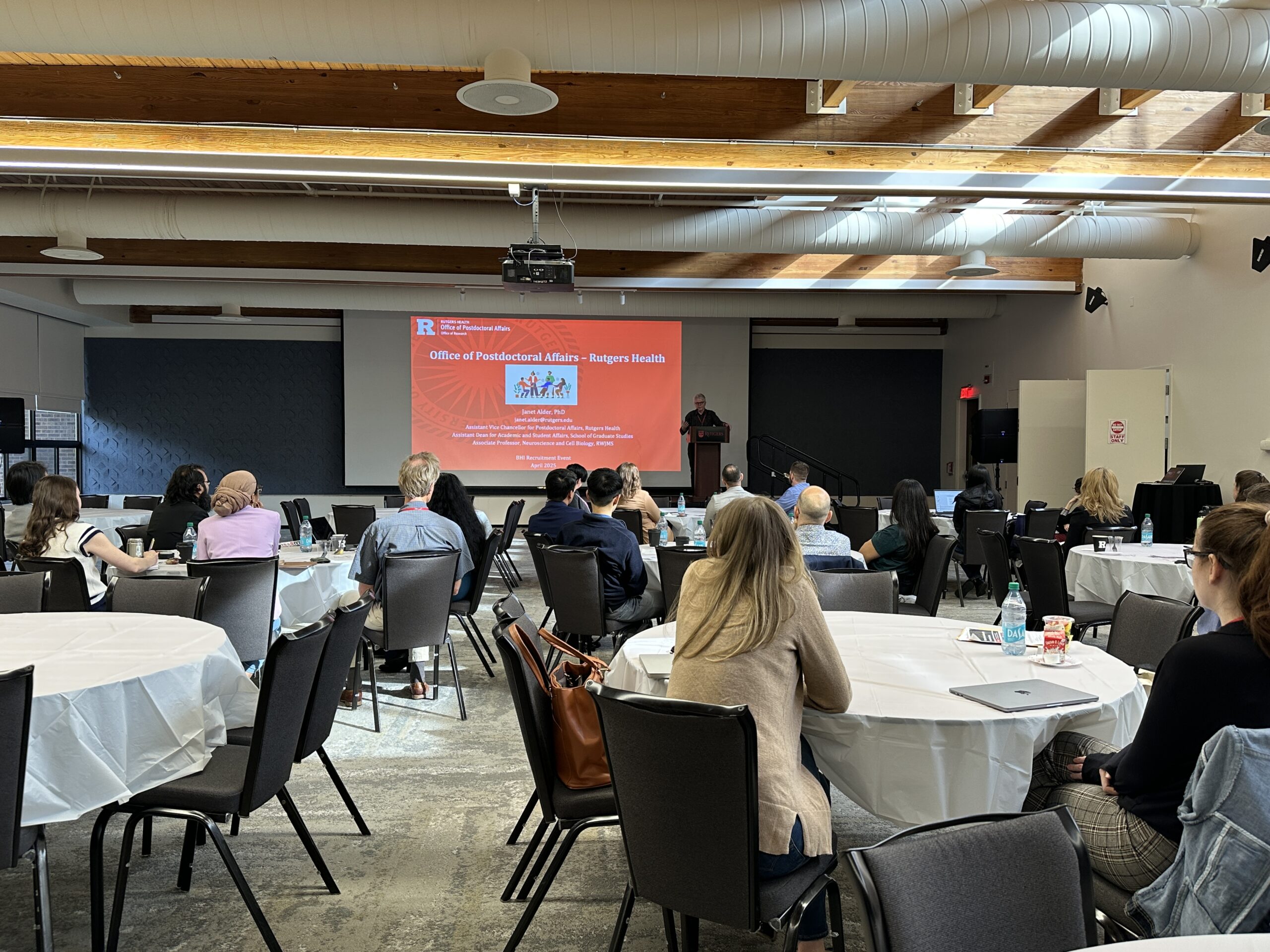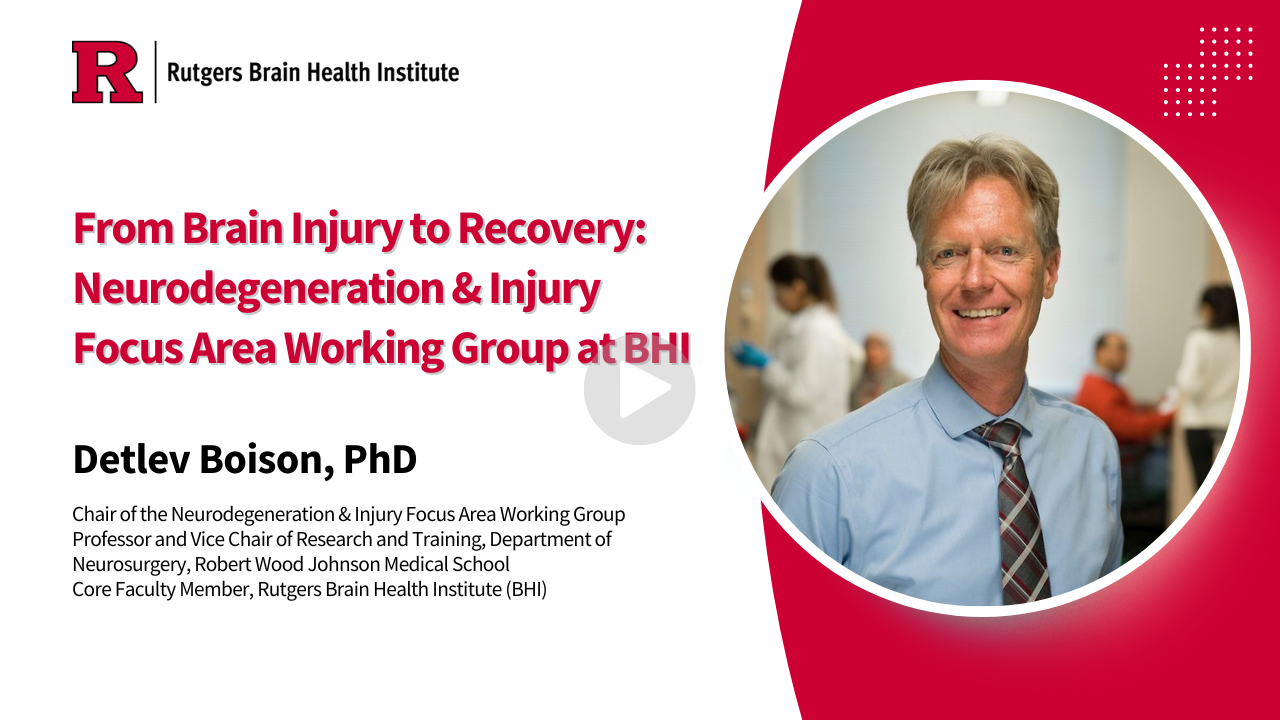- We hosted An Evening with Friends of BHI, featuring a presentation by BHI Director Dr. Gary Aston-Jones, a performance by a Met Opera soprano, and opportunities to connect with BHI’s five Center Directors and faculty.
- We’re excited to highlight a video of the Neurodevelopment FAWG’s new Chair, Dr. Maria Chiara Manzini.
- We celebrate the promotions of our BHI faculty members – congratulations to Drs. Nina Cooperman, Victoria Abraira, Brian Daniels, Alison Bemstein, and Huijuan Hu.
- We are thrilled to announce that Dr. Wayne Fisher, Director of RUCARES, has been honored with the 2025 Brian A. Iwata Award for Outstanding Career Contributions to Applied Behavior Analysis by the Society for the Experimental Analysis of Behavior.

Monthly Newsletters
Stay up to date with the latest breakthroughs, events, and opportunities at the Brain Health Institute. Our monthly newsletters keep you informed about key research advancements, upcoming seminars, funding announcements, and more.
Newsletter Highlights
Stay informed with the latest updates from the Rutgers Brain Health Institute. Explore groundbreaking research, new faculty achievements, event recaps, and commentary on emerging neuroscience innovations.
- Rutgers Giving Days, highlighting the impact of donor support on advancing neuroscience research.
- The CAHBIR & CCNP Open House showcased cutting-edge brain imaging and computational psychiatry initiatives.
- The Krieger Klein Alzheimer’s Research Center Symposium featured talks by leading experts and recognized outstanding research contributions.
- The BHI Postdoctoral Alliance Trainee Retreat provided valuable networking and career development opportunities for trainees.
- The 17th Annual NJ Regional Brain Bee challenged high school students in neuroscience knowledge.
- We hosted the 2025 BHI Postdoc Recruitment Event, welcoming 19 outstanding graduate students and postdoctoral fellows from a competitive pool of over 100 applicants for a two-day visit to explore postdoctoral opportunities in neuroscience and brain health research.
- We’re excited to welcome Dr. Latha Devi as BHI’s new Program Manager and Jacqueline Fung as our new Grant Administrator.
- We celebrate Drs. Anna Konova and Avram Holmes’ promotion to Associate Professor with tenure.
- Congratulations to Dr. David Zald on receiving a new NIMH R01 grant to study the neuroscience of temptation resistance across psychiatric disorders.
- Chair Dr. Detlev Boison introduced the Neurodegeneration & Injury Focus Area Working Group (NDI-FAWG), which investigate neurodegeneration following brain injury and develop neuroprotective and neuroregenerative strategies.
Explore All Newsletters
Stay Up To Date With Our Centers
Find all the latest news for our centers down below
Have News You Want To Share?
Submit a request to have your news featured here on our site and our monthly newsletter.





